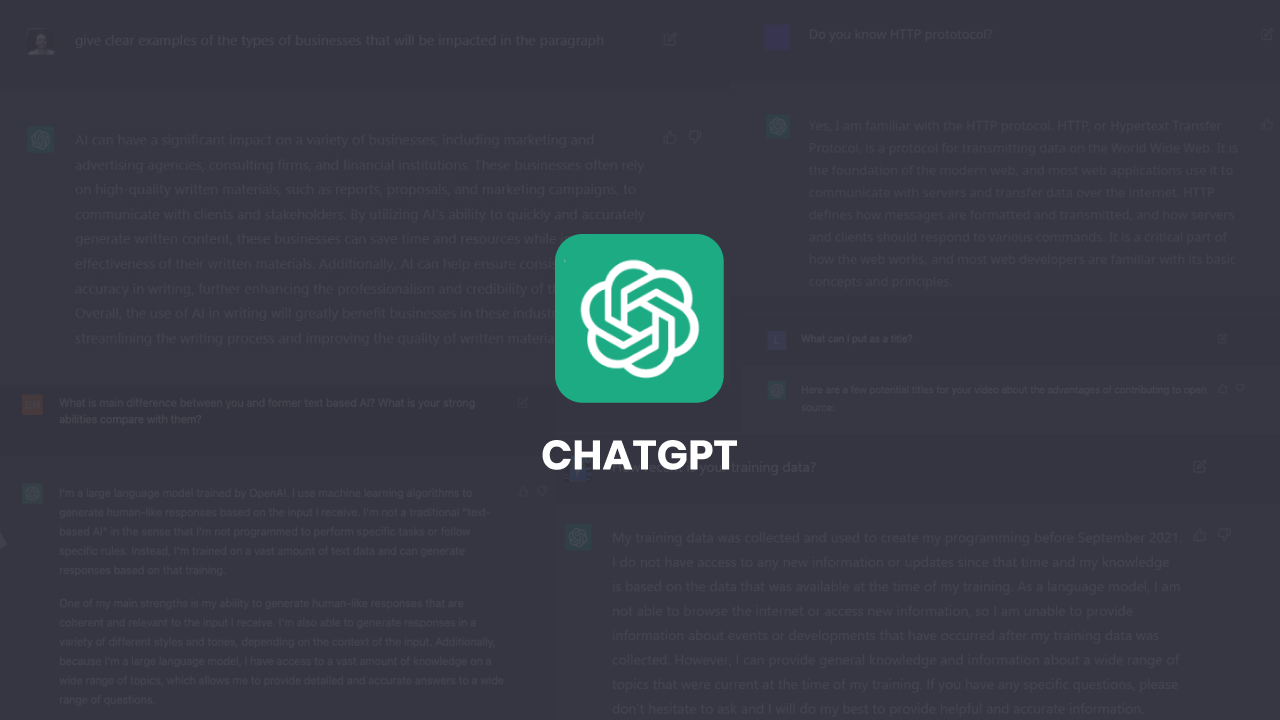ChatGPT was released on 30th November 2022, and within five days, it had over a million global users. These numbers indicate the anticipation among tech enthusiasts to check out the latest variant of GPT (Generative Pre-training Transformer) language model, specifically developed to generate human-like text in a conversational context. ChatGPT, which is currently free for use, is a prototype based on GPT-3.5, whose foundation engine is GPT-3. The GPT-3 language model has been trained using vast amounts of data downloaded from the web, books, academic journals, and Wikipedia, backed by Reinforcement Learning from Human Feedback (RLHF), making it a powerful tool for understanding and generating human-like text.
About ChatGPT
Large Language Models (LLMs) require a lot of training and fine-tuning to reach ideal performance levels, which is why it is important to know that ChatGPT is essentially 'frozen' and cannot learn new things. It has certain noteworthy limitations and dangers.
ChatGPT is sensitive to the input received (how the question is phrased) and may respond with varying outputs. The output (response or answer) may sound plausible but can be incorrect or nonsensical.
ChatGPT can be vulnerable to cybersecurity attacks because it is connected to the internet and can be used to spread malicious content/viruses or extract information for fraudulent purposes and targeted phishing attacks.
High-risk areas related to Health, Safety and Finance should not rely on ChatGPT for accurate, usable and secure output. However, use cases in IT, Sales, Marketing and Content Creation are well-suited for the current capabilities of ChatGPT.
These include -
- Collating research
- Brainstorming content ideas using keywords or topics
- Writing blogs, social media posts, and newsletters for marketing purposes
- Creating personalised communication to be used in product descriptions or emails
- Summarising documents by giving ChatGPT the full text and requesting a shorter version
- Writing and reviewing code
- Automating certain aspects of sales
- Optimising business processes with automation
Role of ChatGPT in Conversation Management
ChatGPT has the potential to improve productivity and efficiency in various business contexts through the automation of tasks generally done by a human. But one area where businesses especially need an edge over other players is improving Customer Experience (CX) and Customer Engagement, of which Conversation Management is a key component. ChatGPT's ability to generate natural-sounding text based on input data can prove especially useful for conversations in the following ways -
Chatbot Development - To train chatbots to understand natural language input and respond in a human-like way.
Text Generation - To generate automated responses to customer queries and also create natural language content for emails, product descriptions and FAQs.
Voice Assistance - To train voice assistants to understand and respond to voice commands.
Personalisation - To create personalised chat experiences by analysing user language and behavioural patterns.
Language Translation - To translate text from one language to another.
Onboarding and After-Sales Service - To provide onboarding and after-sales services to customers.
Customer Service Support - To assist customer service representatives in answering complex questions.
ChatGPT for Business Use
Businesses must look at how AIs like ChatGPT can enhance process workflows. While doing so, they need to consider several aspects when sizing up AI technologies.
These include -
- What are the business criteria for selecting use cases, given the limitations of the technology?
- Which areas could it potentially help or disrupt across the value chain?
- What is the organisational policy and stance on the use of the technology?
- What legal standards must the technology follow to retain trust among stakeholders?
The potential dangers of ChatGPT in terms of inaccurate information and insecure communication have been discussed early on. But a threat that looms large in people's minds when looking at AI like ChatGPT is "Will it replace us?"
The AI and human partnership cannot be denied. Humans have played an integral role in guiding ChatGPT with measures like Reinforcement Learning from Human Feedback (RLHF). Experts have helped develop its capabilities which in turn helps them accomplish tasks that AIs like ChatGPT have been trained to do.
ChatGPT can vastly supplement human skills but not replace them.








